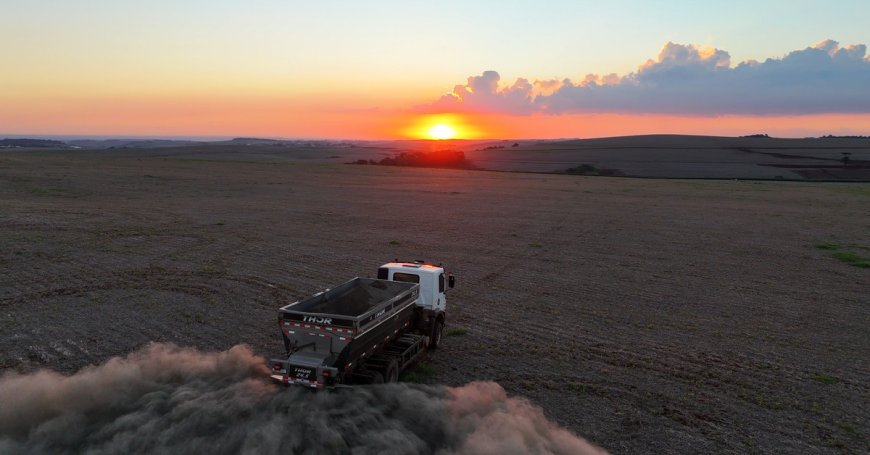The proposed climate fix tech companies just spent millions on? Rocks.
Terradot’s pilot program in Brazil involves spreading crushed basalt over farmland. | Image: Terradot To try to counteract the impact their pollution has on the climate, Google and other big companies have bought into a plan to trap carbon dioxide using rocks. They recently announced multimillion dollar deals with a Sheryl Sandberg-backed startup called Terradot. Google, H&M Group, and Salesforce are among a gaggle of companies that collectively agreed to pay Terradot $27 million to remove 90,000 tons carbon dioxide from the atmosphere. The deals were brokered by Frontier, a carbon removal initiative led by Stripe, Google, Shopify, and McKinsey Sustainability. Separately, Google announced its own deal to purchase an additional 200,000 tons of carbon removal from Terradot. Both companies declined to say how much that deal is worth. If the cost is similar to the Frontier agreement — roughly $300 per ton of CO2 captured — it could add up to $60 million, although Google says it expects the price to come down over time for this larger deal. “It’s a big deal.” Google says it’s the biggest purchase yet of carbon removal through enhanced rock weathering (ERW), the strategy Terradot uses to try to slow climate change. It’s a relatively low-tech tactic for taking carbon dioxide out of... Read the full story at The Verge.


To try to counteract the impact their pollution has on the climate, Google and other big companies have bought into a plan to trap carbon dioxide using rocks. They recently announced multimillion dollar deals with a Sheryl Sandberg-backed startup called Terradot.
Google, H&M Group, and Salesforce are among a gaggle of companies that collectively agreed to pay Terradot $27 million to remove 90,000 tons carbon dioxide from the atmosphere. The deals were brokered by Frontier, a carbon removal initiative led by Stripe, Google, Shopify, and McKinsey Sustainability.
Separately, Google announced its own deal to purchase an additional 200,000 tons of carbon removal from Terradot. Both companies declined to say how much that deal is worth. If the cost is similar to the Frontier agreement — roughly $300 per ton of CO2 captured — it could add up to $60 million, although Google says it expects the price to come down over time for this larger deal.
Google says it’s the biggest purchase yet of carbon removal through enhanced rock weathering (ERW), the strategy Terradot uses to try to slow climate change. It’s a relatively low-tech tactic for taking carbon dioxide out of...
What's Your Reaction?





































